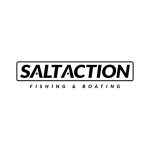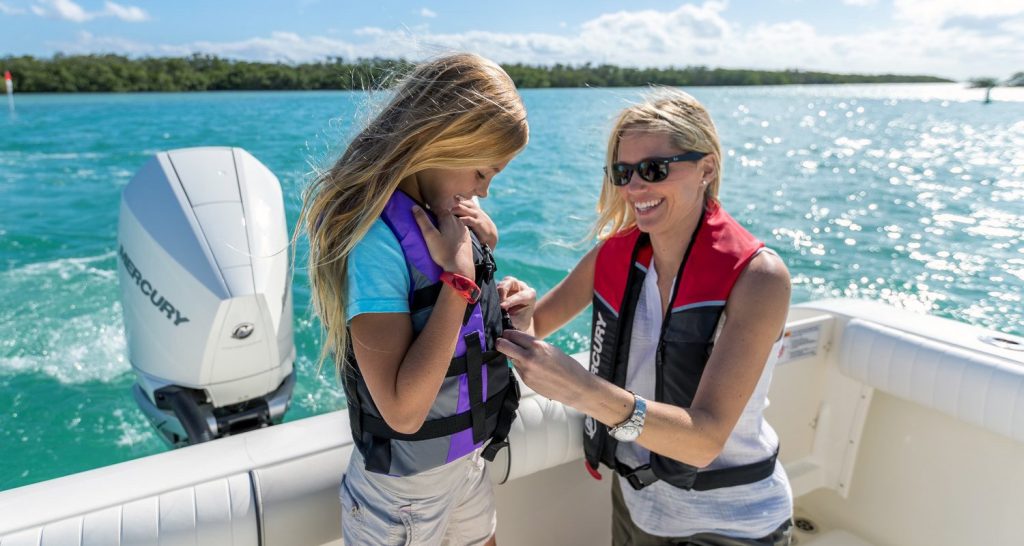Safety and operation of boats are paramount responsibilities for anyone captaining a vessel. As the captain, it is up to you to ensure the safety of yourself, your crew, and your passengers during your time on the water.
Boating can be a highly enjoyable experience, but it also requires attentiveness to key safety practices. This guide covers essential safety measures, from marine communication to preparation, to help ensure a safe and successful journey on the water.
Proper Marine Communication
Offshore, cell phones can quickly become unreliable due to weak signals, and their batteries may die after a long day at sea. While they are helpful, it is unwise to rely on cell phones in emergency situations. Instead, every boat should have a VHF marine radio. VHF channel 16 is the designated maritime emergency channel, and it should only be used in critical situations.
Marine-band radios provide reliable communication with the Coast Guard at any time, day or night. To maximize safety, make sure your VHF radio is functioning and that everyone on board knows how to use it. For the best VHF radios, explore options like marine VHF radios designed for boating.
Stay Sober
Operating a boat while under the influence of alcohol or drugs is illegal in every state. Boating under the influence (BUI) or boating while intoxicated (BWI) can result in severe penalties, including jail time, hefty fines, and the suspension or loss of your boating license.
In 2016, 80% of fatal boating accidents were caused by drowning, and 83% of those who drowned were not wearing a flotation device. Alcohol is the leading contributor to fatal boating accidents, and even the strongest swimmers can be incapacitated by injury, fatigue, or unconsciousness.
Always stay sober while operating a boat, and make sure everyone on board is equipped with a proper flotation device, such as a personal flotation device (PFD).
Know Your Float Plan
A float plan is crucial for ensuring that someone on land knows where you are going and when you plan to return. Provide a detailed float plan to a trusted friend or family member who will remain onshore. The sooner a boat is reported as overdue, the higher the chances of a successful rescue.
Your float plan should include essential details such as:
- Your vessel's make and model
- Departure location and destination
- Estimated time of return
- Number of people on board
- Emergency contacts and communication devices on the vessel
Providing this information to search and rescue teams can significantly improve the outcome of an emergency.
Know The Marine Environment
Before heading out, always check for the latest weather conditions and marine advisories. The National Weather Service (NWS) issues small craft advisories, storm warnings, and other marine weather forecasts that are essential for safe boating.
If you have a VHF marine radio, you can listen to weather forecasts on channels 1 through 5. Additionally, you can check real-time marine weather updates on the National Weather Service website.
Being aware of changing weather patterns is crucial to avoid getting caught in dangerous conditions.
Be Prepared
Preparation is key when it comes to boating safety. In addition to a properly functioning VHF radio, boaters should carry essential emergency equipment such as:
- An Emergency Position-Indicating Radio Beacon (EPIRB)
- Signal flares
- A whistle or horn
- A signal mirror
These tools can help first responders locate your vessel in the event of an emergency. Make sure all safety gear is in good condition and that everyone aboard knows how to use it.
Final Thoughts
Ensuring boating safety involves more than just following basic guidelines—it requires proper communication equipment, staying sober, having a well-prepared float plan, monitoring the marine environment, and carrying the necessary emergency gear. By prioritizing safety and preparation, you can enjoy a secure and enjoyable experience on the water. Explore more safety gear options on Amazon, such as boating safety equipment to enhance your next trip.





